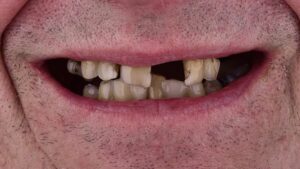What To Do When You’re Scared of The Dentist But Need Treatment
If you fear the dentist, you are not alone. It is a common issue faced by many people. Whether it’s worrying about pain, feeling helpless in the dental chair, or bad experiences in the past, anxiety about dental visits can be a big hurdle to keeping your teeth healthy. But it’s important to know that you’re not alone, and there are ways to manage and overcome your fear.
Understanding Dental Fear and Anxiety
Dental fear can range from mild nervousness to severe phobia. In Australia, around 85% of people feel some level of anxiety about dental procedures. This fear can come from past negative experiences, feeling out of control during treatments, or hearing about others’ bad experiences. You might also feel embarrassed about the state of your teeth, adding to your anxiety.
Dental fear can affect anyone, regardless of age or background. It can stem from various sources, including childhood memories of uncomfortable dental visits or a general fear of medical procedures. Understanding the root cause of your anxiety is the first step towards addressing it.
The Consequences of Avoiding Dental Care
Giving in to your dental fear can lead to serious health problems. Skipping regular dental check-ups and preventive care can cause issues like cavities, gum disease, and even tooth loss. These problems can then lead to more serious health conditions like diabetes, heart disease, and infections.
Avoiding the dentist can also impact your quality of life. Chronic dental pain, trouble eating and speaking, and feeling self-conscious about your teeth can all lower your sense of well-being and confidence. Poor oral health can also affect your social interactions and professional life, as you may feel embarrassed to smile or speak freely.
Untreated dental issues can escalate, requiring more complex and costly treatments in the future. For example, a small cavity that could have been easily filled might progress to a root canal or extraction if neglected. This not only increases physical discomfort but also heightens anxiety about your future dental visits.
Overcoming Dental Fear: Strategies for Success
Here are some effective strategies to help you manage your dental fear and take control of your dental health:
Acknowledge and Understand Your Dental Fear
The first step is to recognise and understand your fear. Think about past experiences and identify what triggers your anxiety. Knowing that your fear is a common and understandable response can help you feel less alone. Talk to your dentist about your concerns so they can tailor their approach to your needs.
Reflecting on your dental history and pinpointing specific moments that caused fear can be enlightening. Was it a painful procedure, a feeling of helplessness, or an unsympathetic dentist? Understanding these triggers helps in finding targeted solutions.
Choose a Dentist Who Specialises in Anxious Patients

Look for a dentist who has experience working with anxious patients. These dentists often create a more comfortable and welcoming environment and use techniques to help you feel at ease.
Such dentists may offer amenities like soothing music, comfortable chairs, and a calming office atmosphere. They are also likely to explain procedures thoroughly, answer all your questions, and ensure you feel in control throughout your visit.
Speak to Your Dentist About Sleep Dentistry Options
If your dental fear is severe, sleep dentistry might be a suitable option for you. Sleep dentistry, also known as sedation dentistry, involves using medication to help you relax or even sleep during dental procedures. This can be particularly beneficial for those with intense anxiety or difficulty sitting still for long periods. Dentists who offer sleep dentistry can provide different levels of sedation, from minimal sedation (where you are awake but relaxed) to general anesthesia (where you are completely asleep).
With sleep dentistry, you can undergo necessary treatments without fear and stress, ensuring a more comfortable and manageable dental experience. This approach can make a significant difference, allowing you to maintain good oral health without the dread of each visit, and can often enable multiple treatments to be completed in a single session.
Establish Open Communication with Your Dental Team
Communication is key. Be honest with your dentist and dental team about your fears. Work together to develop a plan that addresses your concerns. This might include discussing pain management options, setting up signals to indicate discomfort, or taking breaks during procedures.
Having an open dialogue allows you to express your fears without judgment. It also enables the dental team to take extra precautions to ensure your comfort. For example, establishing a hand signal to indicate a need for a break can provide a sense of control.
Utilise Relaxation Techniques

Relaxation techniques can help manage anxiety during dental visits. Deep breathing, visualisation, or listening to calming music can keep you centred. Some dentists also offer sedation options like nitrous oxide or oral sedatives to help you relax.
Practising relaxation techniques at home can also prepare you for a dental visit. Meditation, yoga, or progressive muscle relaxation can reduce overall anxiety levels, making it easier to stay calm during the appointment.
Gradually Expose Yourself to Dental Care
If fear of the unknown is a big issue, consider scheduling a visit just to tour the dental office and meet the team without undergoing treatment. This can help make the environment feel less intimidating.
Gradual exposure can desensitise you to the dental environment. Start with short, non-invasive visits and gradually work up to more comprehensive procedures. This step-by-step approach can build confidence and reduce anxiety.
Prioritise Self-Care and Positive Reinforcement
Maintaining a healthy lifestyle and practising self-care can boost your confidence. Reward yourself for taking steps to address your fear, no matter how small.
Engage in activities that promote relaxation and well-being, such as exercise, hobbies, or spending time with loved ones. Celebrating small victories, like successfully attending a dental check-up, reinforces positive behaviour and builds momentum.
Establish a Consistent Dental Care Routine
Regular check-ups and cleanings can help desensitise you to the dental environment. Starting with simple examinations and building up to more complex procedures can make visits feel more routine and manageable.
Consistency is key to overcoming dental fear. Regular visits help normalise the experience and reduce the buildup of anxiety. Over time, positive experiences can replace negative memories, making future visits less daunting.
Embracing a Future of Confident, Comfortable Dental Care
Overcoming dental fear takes time, but it can lead to significant improvements in your oral health and overall well-being. By acknowledging your anxiety, finding the right dental care provider, and using effective coping strategies, you can regain your confidence and enjoy a healthy, beautiful smile.
Remember, you are not alone in this journey. Here at Melbourne Dental Implant and Sleep Centre, we are here to support you so you can conquer your dental fears and look forward to stress-free dental visit. Call us at 1800 IMPLANT to schedule a consultation with one of our experts.


